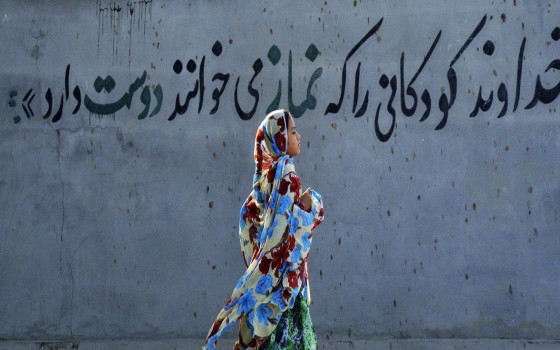
Human rights experts express concern about a draft law on “veil and chastity” in Iran

- Europe and Arabs
- Saturday , 2 September 2023 15:8 PM GMT
New York-Tehran: Europe and the Arabs
A number of United Nations human rights experts have expressed serious concern about a new draft law in Iran, currently being considered by Parliament, that would impose a series of new penalties on women and girls who do not wear the veil. According to the United Nations daily news bulletin, of which we received a copy this Saturday morning
The experts said, in a press release, that the bill could be described as a form of gender segregation (segregation of the sexes) as the authorities appear to rule "through systematic discrimination with the aim of oppressing women and girls into their complete subjugation."
The independent UN experts said: "The proposed legislation on (supporting the family by promoting a culture of chastity and veiling) and the current actual restrictions are all discriminatory and may amount to gender oppression."
According to experts, the proposed legislation imposes severe penalties on women and girls for non-compliance (for wearing the veil), which could lead to violent enforcement of the law.
Human rights experts added that the legislation also violates basic rights, including the right to participate in cultural life, the prohibition of gender discrimination, freedom of opinion and expression, the right to peaceful demonstration, access to social, educational and health services, and freedom of movement.
Experts warned that the draft law seeks, through the use of terms such as “nudity, lack of chastity, non-veiling, poor clothing, and immoral acts that lead to disturbing the peace,” to allow public institutions to deny services and opportunities to those who do not comply with compulsory veiling. the basic. They pointed out that the punishment may also affect directors and officials of organizations who do not implement the law.
“The weaponization of ‘public morality’ to deny women and girls freedom of expression severely undermines their empowerment and leads to the entrenchment and expansion of gender discrimination and marginalization, with broader negative consequences for children and society as a whole,” the experts said.
According to experts, the Chastity and Hijab Bill was submitted to Parliament on May 21, 2023. Since then, it has been amended several times, with the latest draft including a significant increase in the number of penalties. On August 13, parliament voted to activate Article 85 of the constitution, which allows a parliamentary committee to review legislation without a public debate.
The experts urged the authorities to reconsider legislation on compulsory veiling in line with international human rights law, and to ensure the full enjoyment of human rights for all women and girls in Iran.
The experts are: the Special Rapporteur on the situation of human rights in the Islamic Republic of Iran, the Special Rapporteur on the promotion and protection of the right to freedom of opinion and expression, the Special Rapporteur in the field of cultural rights, and the Working Group on Discrimination against Women and Girls
It is noteworthy that the special rapporteurs and independent experts are appointed by the Human Rights Council in Geneva, which is an intergovernmental body responsible for the promotion and protection of human rights around the world. Rapporteurs and experts are charged with studying human rights situations and submitting reports on them to the Human Rights Council. It should be noted that this position is ceremonial, and these experts are not considered employees of the United Nations and do not receive remuneration for their work.












No Comments Found